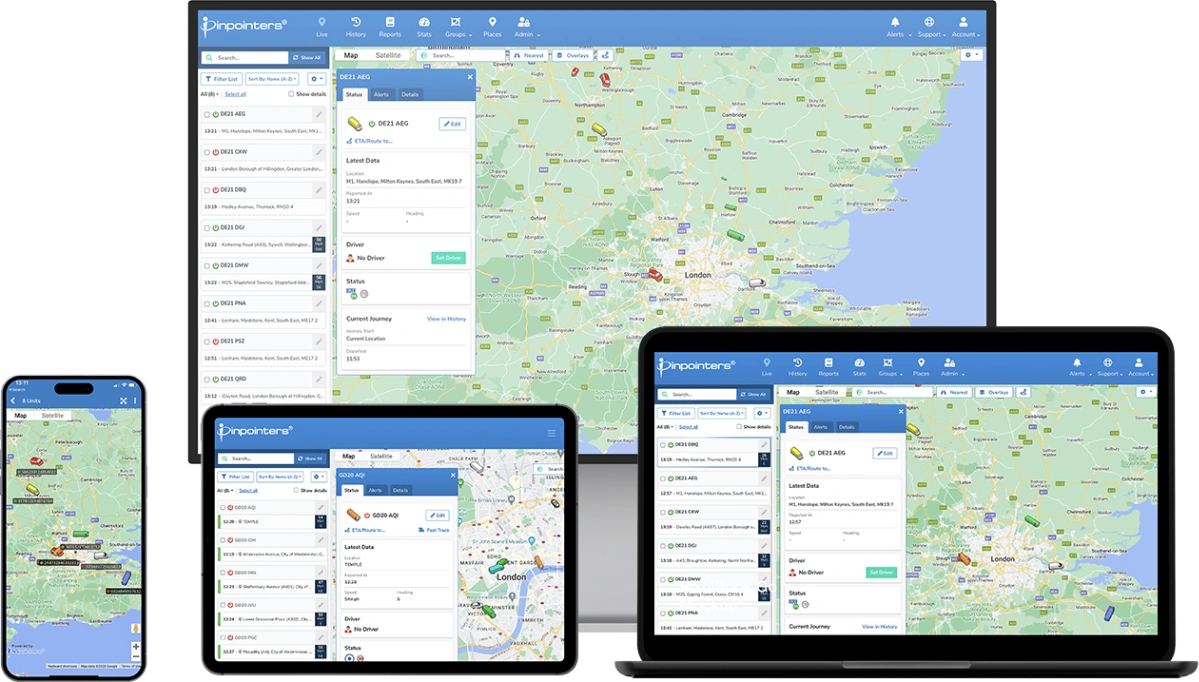
In the fast-paced world of business, efficiency and optimization are key components for success. One often overlooked aspect that significantly impacts operational efficiency is fleet management tracking. Whether your company operates a handful of vehicles or an extensive fleet, implementing a robust tracking system can yield a myriad of benefits, ultimately contributing to increased productivity and profitability.
1. Real-Time Visibility
One of the primary advantages of fleet management tracking is real-time visibility into your entire fleet. With GPS technology, businesses can track the location, speed, and route of each vehicle instantly. This level of insight is invaluable, enabling companies to make informed decisions on the fly. Real-time visibility helps in optimising routes, minimising idle time, and rerouting vehicles to avoid traffic or other unforeseen obstacles, leading to more efficient operations.
2. Improved Operational Efficiency
Fleet management tracking goes beyond mere location tracking. It provides a comprehensive overview of vehicle health, maintenance schedules, and driver behaviour. Businesses can monitor fuel consumption, track mileage, and receive alerts for scheduled maintenance, preventing unexpected breakdowns and costly repairs. This proactive approach to vehicle maintenance translates to increased operational efficiency, reduced downtime, and a longer lifespan for your fleet.
3. Cost Reduction
Effective fleet management tracking can significantly impact the bottom line by reducing operational costs. Optimised routes and fuel-efficient driving practices result in decreased fuel consumption, cutting down on one of the most significant expenses for any fleet.
4. Enhanced Customer Service
For businesses involved in transportation and logistics, customer satisfaction is paramount. Fleet management tracking ensures timely and accurate deliveries by providing real-time updates on the status and location of shipments. This transparency builds trust with customers and helps businesses meet delivery deadlines consistently, leading to increased customer satisfaction and loyalty.
5. Compliance and Safety
Regulatory compliance is a critical aspect of fleet management, especially in industries where specific guidelines must be adhered to. Fleet tracking systems often include features that monitor compliance with regulations such as hours of service (HOS) for drivers. Ensuring compliance not only helps avoid legal issues but also contributes to overall road safety. Businesses that prioritise safety through tracking systems may benefit from lower insurance premiums and a positive public image.
6. Asset Security
Theft and unauthorised use of company vehicles can be a significant concern for businesses with fleets. Fleet management tracking provides a layer of security by allowing businesses to monitor the whereabouts of their assets at all times. In the event of theft, the real-time tracking data can assist law enforcement in recovering stolen vehicles promptly.
7. Environmental Impact
In an era where environmental sustainability is a growing concern, fleet management tracking can contribute to reducing a company's carbon footprint. By optimising routes, minimising idle time, and promoting fuel-efficient driving practices, businesses can decrease their overall impact on the environment, aligning with the growing demand for eco-friendly practices.
In conclusion, fleet management tracking is an indispensable tool for businesses looking to streamline operations, cut costs, enhance customer satisfaction, and contribute to a safer and more sustainable future. The benefits of real-time visibility, operational efficiency, cost reduction, enhanced customer service, compliance, asset security, and environmental impact collectively make fleet management tracking a wise investment for businesses of all sizes. As technology continues to advance, embracing these solutions will become even more crucial in maintaining a competitive edge in today's dynamic business landscape.
